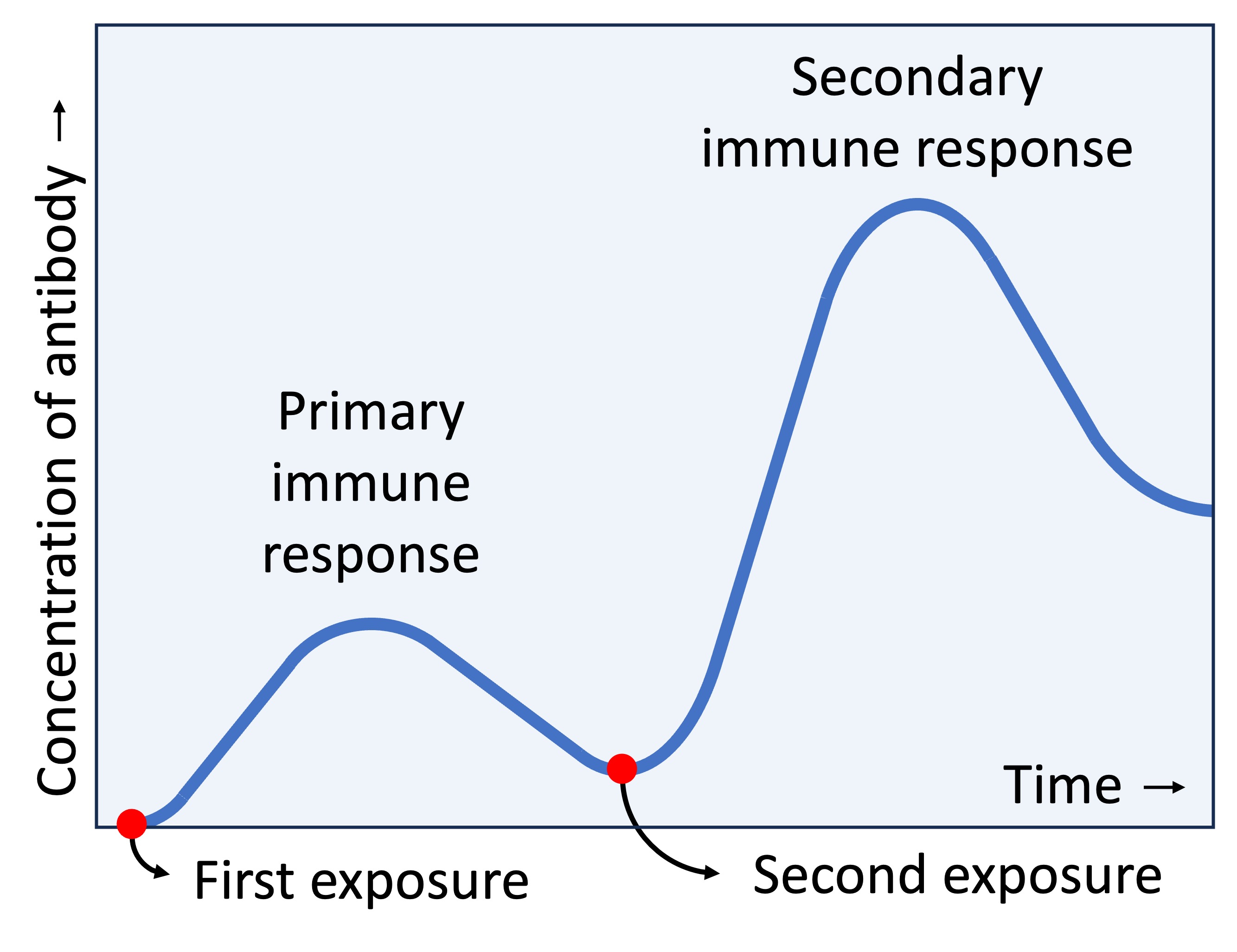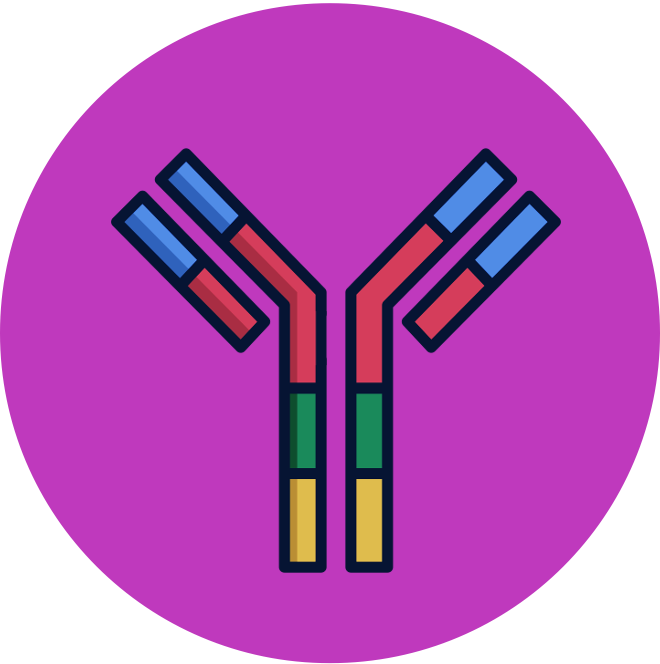

Memory
The adaptive immune system relies on the clonal expansion of plasma cells to produce sufficiently large numbers of antibodies
-
This means there is a delay between the initial exposure to a pathogen and the production of large quantities of antibodies
-
If pathogens can reproduce rapidly during this delay period, they can impede normal body functioning and cause disease
Memory cells are produced to prevent this delay in subsequent exposures and hence prevent disease symptoms developing
-
When lymphocytes are activated by exposure to a specific antigen, a small proportion will differentiate into memory cells
-
Memory cells are long living and will survive in the body for many years, producing low levels of circulating antibodies
-
If a second infection with the same pathogen occurs, memory cells will react more vigorously to produce antibodies faster
-
As antibodies are produced faster, the pathogen cannot reproduce in sufficient amounts to cause disease symptoms
-
Hence, because pathogen exposure no longer causes the disease to occur, the individual is said to possess immunity
The initial reaction to a foreign pathogen is called the primary immune response, while the reaction to being reexposed to the same pathogen is called the secondary immune response
-
The secondary immune response will be faster and significantly more potent (greater antibody production) due to the presence of pre-existing memory cells
Immunological Memory






